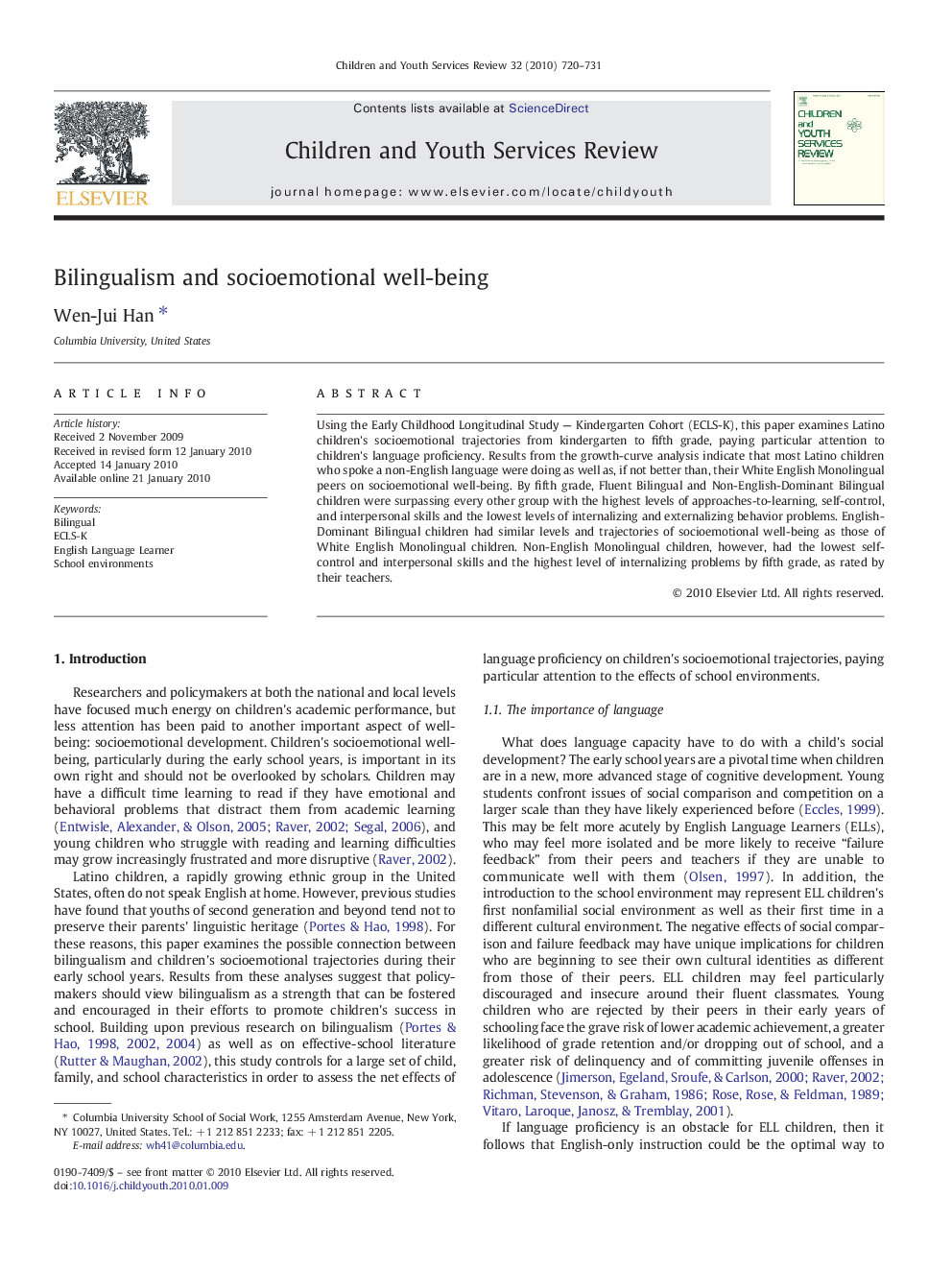| Article ID | Journal | Published Year | Pages | File Type |
|---|---|---|---|---|
| 347517 | Children and Youth Services Review | 2010 | 12 Pages |
Using the Early Childhood Longitudinal Study — Kindergarten Cohort (ECLS-K), this paper examines Latino children's socioemotional trajectories from kindergarten to fifth grade, paying particular attention to children's language proficiency. Results from the growth-curve analysis indicate that most Latino children who spoke a non-English language were doing as well as, if not better than, their White English Monolingual peers on socioemotional well-being. By fifth grade, Fluent Bilingual and Non-English-Dominant Bilingual children were surpassing every other group with the highest levels of approaches-to-learning, self-control, and interpersonal skills and the lowest levels of internalizing and externalizing behavior problems. English-Dominant Bilingual children had similar levels and trajectories of socioemotional well-being as those of White English Monolingual children. Non-English Monolingual children, however, had the lowest self-control and interpersonal skills and the highest level of internalizing problems by fifth grade, as rated by their teachers.
